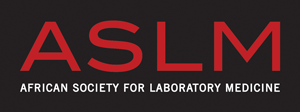Adama, Ethiopia (February 2019): The African Society for Laboratory Medicine (ASLM) joined efforts with the US Centers for Disease Control and Prevention (CDC), CDC-Ethiopia, and the Global Health Security Agenda (GHSA) teams to address health security and One Health through its first ever Laboratory Quality Management System (LQMS) training for veterinary diagnostic laboratories. The two-week LQMS training was held 11–22 February 2019 in Adama, Ethiopia. The delegates were drawn from the Ministry of Agriculture and 15 regional veterinary diagnostic laboratories. The training aimed to support the five-year national One Health Strategic Plan, which was drafted and launched in October 2018. The One Health Strategic Plan declares Ethiopia’s commitment to proactively protect Ethiopians from infectious disease threats and to improve global health security. The training covered topics related to LQMS and the ISO 17025:2017 standards for the competence, impartiality and consistent operation of veterinary laboratories.
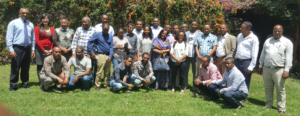
During the opening ceremony of the LQMS training, Ms Theresa Kanter, Deputy Director of GHSA, CDC-Ethiopia, emphasized the need for quality improvement in veterinary diagnostic laboratories, as they play a key role in disease detection and response. Dr Etsegenet Tekeba from the Ministry of Agriculture added, “This collaboration, and specifically the LQMS training, should be taken as the best opportunity to improve the capacity of the veterinary diagnostic laboratories to ensure and boost the animal health sector productivity and contribution to the One Health Strategy of the country.”
Dr Kathleen Gallagher, Director of GHSA, CDC-Ethiopia, commended the Ministry of Agriculture for investing in the LQMS of the veterinary diagnostic laboratories in the country. “Awareness creation and training are the first important steps down the path of laboratory quality improvement,” she said.
ASLM Acting Chief Executive Officer, Mr Nqobile Ndlovu, underscored the importance of countries advancing the One Health approach. “ASLM is ready to support any African country to build capacity for diagnostic services in their veterinary and environmental laboratories,” he said.
Ms Mah-Sere Keita, Director of Programs at ASLM, highlighted that approximately 75% of emerging infectious diseases in people originate from animals, and it is critical for countries to advance the One Health approach. She also mentioned that ASLM, together with US CDC Office in Ethiopia, offered a series of quality management system awareness creation and training workshops to the veterinary laboratory network of Ethiopia as a significant first step toward bridging advances made on the human health sector to the animal health sector. Such efforts need to be continued and amplified in other African countries as well.
At the end of the training workshop, all participants received technical assistance to plan 3–5 improvement projects (including the write up of quality manuals and standard operating procedures for various laboratory processes) over the next 6 months.
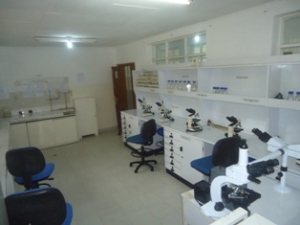
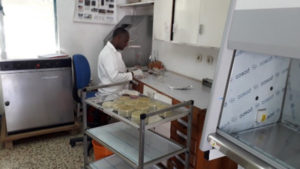
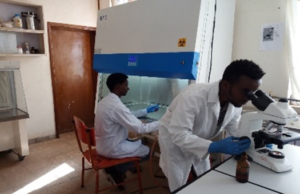
Three participating regional veterinary diagnostic laboratories in Ethiopia (left to right: Hirna, Asella and Yabelo).

